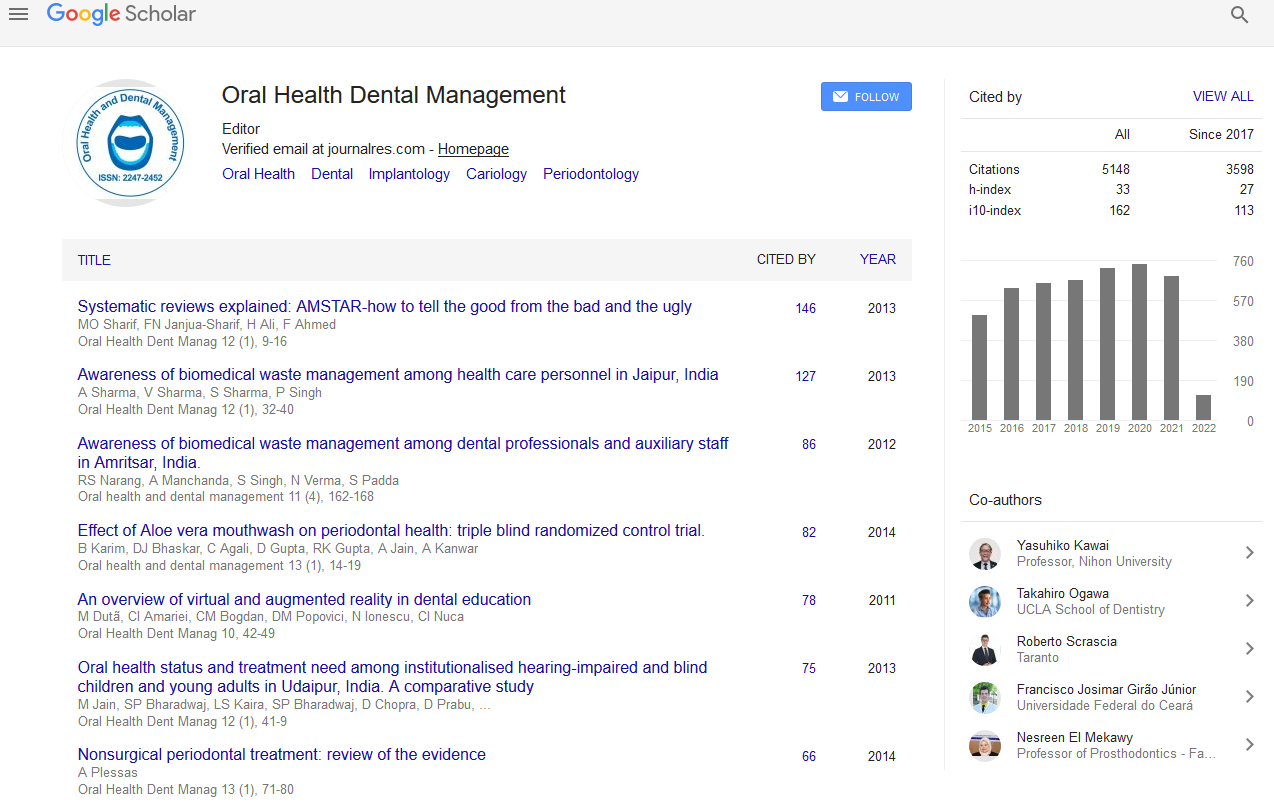Indexed In
- The Global Impact Factor (GIF)
- CiteFactor
- Electronic Journals Library
- RefSeek
- Hamdard University
- EBSCO A-Z
- Virtual Library of Biology (vifabio)
- International committee of medical journals editors (ICMJE)
- Google Scholar
Useful Links
Share This Page
Journal Flyer

Open Access Journals
- Agri and Aquaculture
- Biochemistry
- Bioinformatics & Systems Biology
- Business & Management
- Chemistry
- Clinical Sciences
- Engineering
- Food & Nutrition
- General Science
- Genetics & Molecular Biology
- Immunology & Microbiology
- Medical Sciences
- Neuroscience & Psychology
- Nursing & Health Care
- Pharmaceutical Sciences
Abstract
Tooth retention and tooth loss in the Bulgarian population aged over 60
Tsvetko Yolov
Objective. Many studies have been carried out on natural tooth retention in elderly people.
However, data on tooth retention in the elderly population in Bulgaria are very scarce. The aim of
this study was to establish tooth loss in the Bulgarian population aged over 60.
Methods. The study was carried out in 1999 and included 653 subjects aged over 60 (263 males and
390 females). Participants were sampled based on age and area of residence. Dentists with abundant
practical experience and specially trained and calibrated by us performed the clinical inspection in
dental surgery.
The following statistical methods were applied: Fisher\'s exact (two-tail) test; χ2 criterion (chisquare;
uncertainty coefficient); χ2 criterion (Mantel-Haenszel chi-square test); ANOVA test.
Results. The results showed that just under one-fourth (23.89%) of the subjects were toothless.
Among the dentate subjects, the average number of the remaining teeth was 15.58. Molars were the
most frequently removed teeth on both jaws.
Conclusions. No significant difference in tooth loss existed between males and females. A statistically
significant linear progression of the percentage of totally toothless subjects was observed with
aging.

